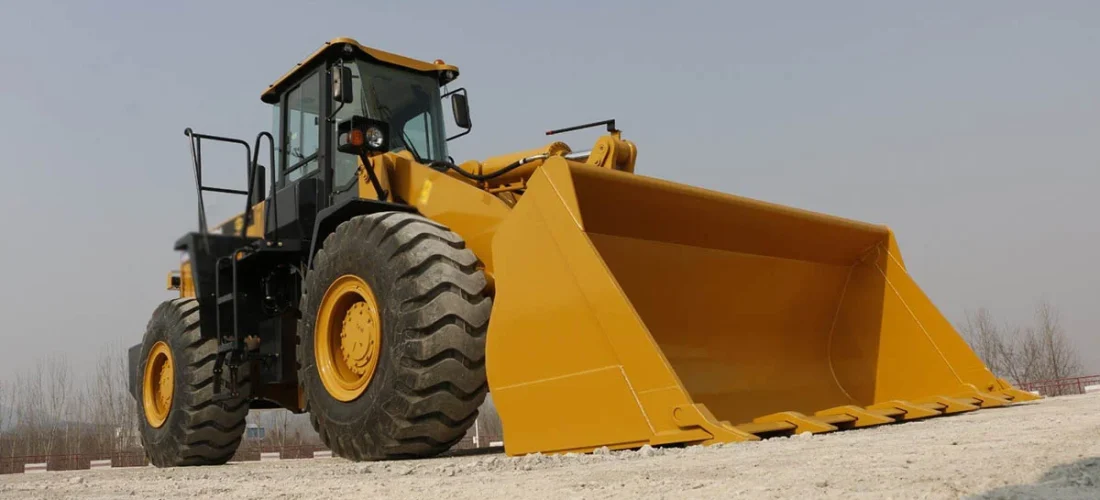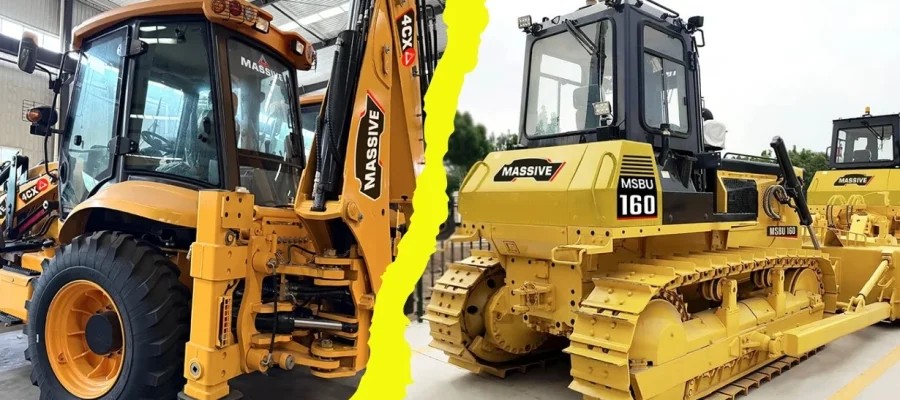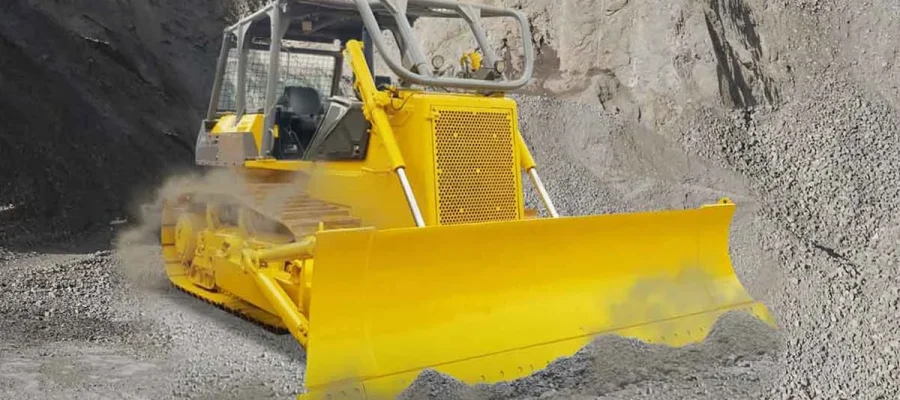
Fiji’s construction, mining, and agricultural sectors are experiencing significant growth, creating unprecedented demand for reliable heavy machinery. Among the most sought-after equipment are wheel loaders—versatile machines that can handle everything from material handling at construction sites to loading trucks in quarries. However, with numerous options available and varying operational requirements across Fiji’s diverse landscape, selecting the right wheel loader can be a challenging decision.
This comprehensive guide will walk you through everything you need to know about wheel loaders for sale in Fiji, from understanding different types and specifications to evaluating local dealers and maintenance requirements. Whether you’re a contractor working on infrastructure projects in Suva or managing agricultural operations in the outer islands, this guide will help you make an informed investment decision.
Understanding Wheel Loaders and Their Applications in Fiji
Wheel loaders are essential pieces of heavy machinery designed to move materials efficiently across various terrains. These versatile machines feature a large bucket at the front and are mounted on wheels rather than tracks, making them ideal for Fiji’s mixed terrain conditions.
Key Applications Across Fiji’s Industries
Construction and Infrastructure Development
Fiji’s ongoing infrastructure development projects require wheel loaders for material handling, site preparation, and loading operations. From the expansion of Nadi International Airport to road construction projects connecting remote communities, wheel loaders play a crucial role in keeping projects on schedule.
Mining and Quarrying Operations
The mining sector in Fiji, particularly gold mining and quarrying operations, relies heavily on wheel loaders for moving ore, loading trucks, and general material handling. The machines must be robust enough to handle Fiji’s sometimes challenging terrain whilst maintaining operational efficiency.
Agricultural and Sugar Industry
Fiji’s sugar industry and diversified agriculture sectors use wheel loaders to handle bulk materials, load transport vehicles, and maintain agricultural infrastructure. The seasonal nature of these operations requires reliable machinery that can perform consistently during peak periods.
Port and Logistics Operations
Major ports like Suva and Lautoka require wheel loaders for cargo handling, container operations, and general port maintenance. These applications demand machines with excellent manoeuvrability and consistent performance.
Types of Wheel Loaders Available in Fiji
Compact Wheel Loaders
Compact wheel loaders are ideal for smaller operations and confined spaces. With operating weights typically ranging from 3 to 8 tonnes, these machines offer excellent manoeuvrability and are perfect for:
- Small construction projects
- Agricultural applications
- Urban development work
- Landscaping and maintenance operations
Mid-Size Wheel Loaders
Mid-size wheel loaders strike a balance between power and versatility. Operating weights range from 8 to 20 tonnes, making them suitable for:
- Medium-scale construction projects
- Quarrying operations
- Commercial agricultural work
- Municipal and government projects
Large Wheel Loaders
Large wheel loaders are designed for heavy-duty applications and typically weigh over 20 tonnes. These powerful machines are essential for:
- Major mining operations
- Large-scale construction projects
- Port and cargo handling
- Industrial applications
SEM Wheel Loaders in Fiji: A Reliable Choice
SEM wheel loaders have gained significant popularity in Fiji’s machinery market due to their reliability, performance, and value for money. SEM, a well-established manufacturer with decades of experience, offers a comprehensive range of wheel loaders suitable for Fiji’s diverse operational requirements.
Why SEM Wheel Loaders Stand Out
Proven Reliability in Tropical Conditions
SEM wheel loaders are engineered to perform consistently in tropical environments. The machines feature enhanced cooling systems, corrosion-resistant components, and robust construction that can withstand Fiji’s humidity and salt air exposure.
Fuel Efficiency and Operating Costs
With fuel costs being a significant operational expense in Fiji, SEM wheel loaders offer excellent fuel efficiency without compromising performance. Advanced engine technology and optimised hydraulic systems contribute to lower operating costs.
Comprehensive Model Range
SEM offers wheel loaders ranging from compact 3-tonne models to powerful 25-tonne machines, ensuring there’s a suitable option for every application across Fiji’s diverse industries.
Strong After-Sales Support
SEM’s commitment to after-sales service includes comprehensive parts availability, technical support, and training programmes for operators and maintenance personnel.
Key Factors to Consider When Buying Wheel Loaders in Fiji
Operational Requirements Assessment
Load Capacity and Bucket Size
Determine the typical load weights and material types you’ll be handling. This directly impacts the required bucket capacity and overall machine size. Consider both current needs and potential future expansion.
Site Conditions and Terrain
Fiji’s diverse terrain requires careful consideration of ground conditions, slope angles, and space constraints. Evaluate whether you need machines with enhanced traction, stability features, or compact dimensions.
Operating Hours and Duty Cycle
Assess your expected daily operating hours and the intensity of use. This information helps determine the required engine power, hydraulic capacity, and overall machine durability.
Technical Specifications
Engine Power and Performance
Match engine specifications to your operational requirements. Consider factors such as:
- Horsepower requirements for typical loads
- Torque characteristics for different applications
- Emission standards compliance
- Fuel consumption rates
Hydraulic System Capabilities
Evaluate hydraulic flow rates, pressure ratings, and cycle times. These specifications directly impact productivity and operational efficiency.
Transmission and Drivetrain
Consider transmission types (manual, automatic, or powershift) based on operator skill levels and operational requirements. Evaluate differential types and traction control systems for your specific terrain conditions.
Comfort and Safety Features
Operator Comfort
Modern wheel loaders offer various comfort features that can significantly impact operator productivity and job satisfaction:
- Air-conditioned cabs with excellent visibility
- Ergonomic control layouts
- Low noise and vibration levels
- Adjustable seating and controls
Safety Systems
Prioritise machines with comprehensive safety features:
- ROPS (Roll-Over Protective Structure) certification
- Backup alarms and warning systems
- Excellent visibility from the operator’s position
- Emergency shutdown systems
Machinery in Fiji: Market Overview and Dealer Selection
Current Market Landscape
The machinery market in Fiji has evolved significantly, with several established dealers offering comprehensive services. The market includes both new and used equipment options, with financing solutions available for qualified buyers.
Evaluating Dealers and Suppliers
Dealer Reputation and Experience
Research dealer track records, customer testimonials, and industry standing. Established dealers with long-term presence in Fiji typically offer better service and support.
Parts Availability and Service Network
Ensure your chosen dealer maintains adequate parts inventory and has qualified service technicians. Consider the dealer’s response times and service coverage across Fiji’s islands.
Warranty and Support Programmes
Compare warranty terms, coverage periods, and support services. Look for dealers offering comprehensive training programmes for operators and maintenance personnel.
Financial Services
Evaluate financing options, lease programmes, and trade-in opportunities. Many dealers offer flexible payment terms tailored to Fiji’s business environment.
Maintenance and Operational Considerations
Preventive Maintenance Requirements
Regular Service Intervals
Establish maintenance schedules based on operating hours and conditions. Certain components may require more frequent servicing in Fiji’s tropical environment.
Component Monitoring
Implement monitoring systems for critical components such as:
- Engine oil and filter changes
- Hydraulic fluid and filter maintenance
- Cooling system cleaning and inspection
- Tyre condition and pressure monitoring
Operator Training and Certification
Safety Training Programmes
Invest in comprehensive safety training for all operators. This includes proper operating procedures, hazard recognition, and emergency response protocols.
Efficiency Training
Provide training on efficient operating techniques to maximise productivity and minimise fuel consumption and component wear.
Spare Parts and Inventory Management
Critical Parts Inventory
Maintain an inventory of essential spare parts to minimise downtime. Consider Fiji’s import timelines when planning parts procurement.
Supplier Relationships
Develop strong relationships with parts suppliers and consider joining dealer service programmes for priority parts availability.
Making Your Investment Decision
Total Cost of Ownership Analysis
Initial Purchase Price
Compare prices across different dealers and models, considering value-added services and support packages.
Operating Costs
Calculate ongoing costs including fuel, maintenance, insurance, and operator wages. Consider the impact of fuel efficiency on long-term operating costs.
Resale Value
Research historical resale values for different brands and models. Well-maintained machines from reputable manufacturers typically retain value better.
Financing Options
Purchase vs. Lease
Evaluate the benefits of purchasing versus leasing based on your cash flow situation and tax considerations.
Government Incentives
Research any available government incentives or programmes supporting machinery purchases for specific industries or development projects.
Moving Forward with Your Wheel Loader Purchase
Selecting the right wheel loader for your operations in Fiji requires careful consideration of multiple factors, from operational requirements to long-term support needs. The combination of understanding your specific needs, evaluating available options, and choosing the right dealer partnership will ensure your investment delivers optimal returns.
SEM wheel loaders offer an excellent balance of performance, reliability, and value that makes them particularly suitable for Fiji’s diverse operational requirements. When combined with proper dealer selection and comprehensive support services, these machines can provide years of reliable service across various applications.
Take time to thoroughly assess your requirements, compare available options, and engage with reputable machinery dealers in Fiji who can provide ongoing support throughout your machine’s operational life. The right wheel loader investment will not only meet your immediate operational needs but also contribute to your long-term business success in Fiji’s growing economy.


